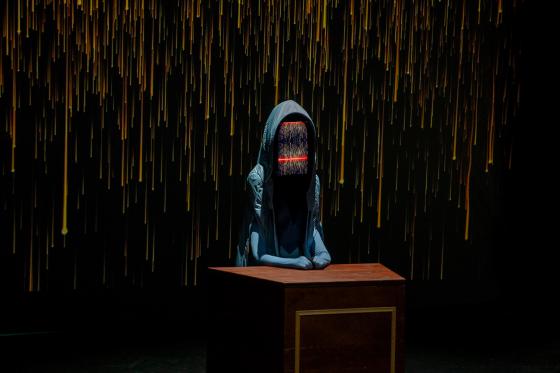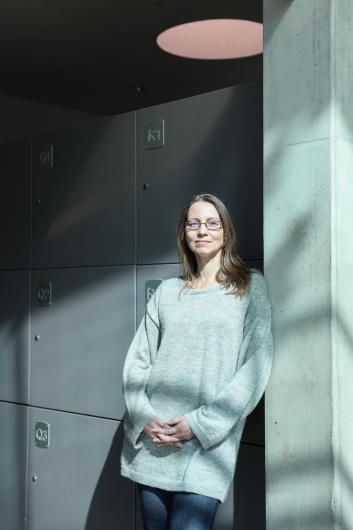Doris Allhutter
AI in court. What algorithms do in the welfare state
Accompanying Programme for JUSTITIA! Data Ghosts
Artificial intelligence is supposed to reduce effort and costs in many areas. But what happens to social justice and equality when this logic is used to make decisions in the welfare state? The lecture shows the impact on our social rights and how civil society can hold courts and supervisory authorities to account.
Doris Allhutter is a Senior Scientist at the Institute for Technology Assessment of the Austrian Academy of Sciences. She holds a doctorate in political science with a focus on science and technology research. She is concerned with the question of how social ideas are inscribed in information systems and how the development and use of technology help to shape social conditions. She is currently investigating software development practices in the field of semantic technologies from a socio-political and socio-material perspective. She is a member of the COST Action on New Materialism: Networking European Scholarship on 'How Matter Comes to Matter'. www.oeaw.ac.at/ita/allhutter
Credits
The accompanying programme was curated and organized by the students of Gin Müller's Case Studies (Critical Studies) course at the Academy of Fine Arts: Abilaschan Balamurlaey, Luan Dannerbauer David Gees, Natalia Philomena Jobe, Sebastian Kokesch, Hanna Kucera, Martina Lajczak, Yuliana Mosheeva, So Young Park, Carlotta Partzsch, Lisa Schmidt, Adrien Summerer, Philip Finsterbusch, Stefan Pfattner Helena McFadzean, Jiachen Xu, Ema Bencikova, Iris Omari
Dates & Tickets
January 2025
Pay as you can on site. Registration via the ticket button.
brut nordwest
Nordwestbahnstraße 8-10, 1200 Vienna
accessible
Event recommendations
Gin Müller, Laura Andreß & team
JUSTITIA! Data Ghosts
Wolfie Christl (Cracked Labs)
Debunking the Tech-bro AI Cult
Accompanying Programme for JUSTITIA! Data Ghosts
Metalab
Who betrayed us? Data, data, data!
Accompanying Programme for JUSTITIA! Data Ghosts
Margarete Jahrmann, Jürgen Schmidt, Max Schrems, Doris Allhutter & Matthias Leichtfried (Moderation)
LOST IN AUTOMATION
Accompanying Programme for JUSTITIA! Data Ghosts
Magazin

Abendprogramm zu "JUSTITIA! Data Ghosts" von Gin Müller, Laura Andreß und Team
brut all over Vienna
brut nordwest
accessible
Nordwestbahnstraße 8-10, 1200 Vienna
Subway: U1, U2 (Praterstern), U4 (Friedensbrücke), U6 (Dresdnerstraße) Tram: 5 (Nordwestbahnstraße) Bus: 5A (Wasnergasse)
accessible
studio brut
not accessible
Zieglergasse 25, 1070 Wien
Subway: U3 (Zieglergasse), Tram: 49 (Westbahnstraße / Zieglergasse)
not accessible









